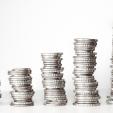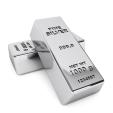Euro at 2-month high, tests ECB's resolve on currency
Frankfurt (May 8) The euro rose to a two-month high against the dollar on Thursday after the European Central Bank kept interest rates unchanged, as expected, with investors now waiting to see if President Mario Draghi ramps up warnings about a strong currency.
The euro, which has gained over 4 percent in the past six months and helped ease inflation already running at subdued levels, was also buoyed by a rise in overnight money market rates driven by dwindling excess cash in the euro zone.
The euro rose to $1.3960, its highest level since March 13 when it hit a 2-1/2 year peak of $1.3967. It was trading at $1.3935 before the ECB rate decision.
"The recent data makes it tough for the ECB to justify a rate cut," said Ian Gunner, portfolio manager at Altana Hard Currency Fund referring to the better-than-expected activity data in the euro zone and a slight rise in inflation in April.
"The $1.40 level remains a natural magnet."
The ECB has focused on the euro's strength in the past few weeks, warning that a further rise could force it to take drastic measures including quantitative easing, wherein it pumps euros into the system and drives down the currency's value.
While it has not drawn a line in the sand, traders say the ECB gets uneasy when the euro rises towards $1.40. A Reuters poll on Wednesday showed most economists expect ECB action if the euro hits $1.42.
Traders said the euro could quickly fall back towards support just under $1.3800 in case of any surprise announcement during Draghi's press conference, due to start at 1230 GMT. But if Draghi chooses to focus on growth and sounds bullish about recovery prospects and opts out of any liquidity easing measures, the euro could rise to test the $1.40 mark.
"We have seen Draghi use rhetoric to curtail the euro and with limited success," said Jeremy Stretch, head of currency strategy at CIBC World Markets.
"The time has come to walk the talk. If he talks about improving credit conditions and better growth prospects, the euro will nudge towards $1.40 threshold."
The euro has drawn support in recent months from factors such as the euro zone's current account surplus as well as signs of inflows into euro zone assets, including peripheral bonds.
That has kept the euro resilient even in the face of an expected divergence in the outlook for U.S. and European monetary policy, with the Fed in the midst of winding down its massive stimulus while the ECB is expected to keep monetary policy loose or possibly ease further in coming months.
But the U.S. dollar has been weak, bolstering the euro.
The dollar index fell to 79.016 a six-month low. Federal Reserve Chair Janet Yellen offered no surprises in her testimony to Congress on Wednesday, highlighting the amount of slack in the economy.
The dollar eased 0.2 percent to 101.73 yen, holding above a three-week low of 101.43 yen set on Wednesday.













